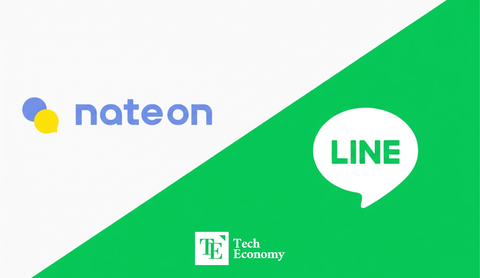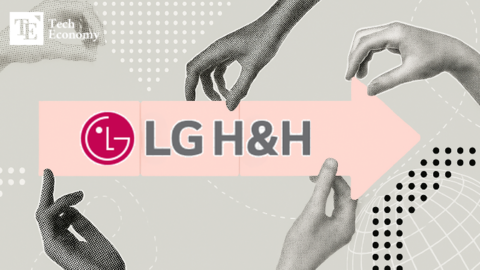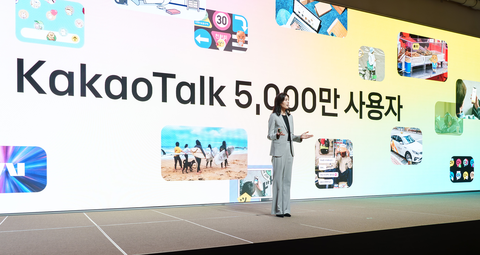[해외 DS] 검색엔진, 가짜뉴스에 대한 믿음 증폭시켜 (1)
입력
수정
검색엔진 사용으로 거짓 정보 믿을 확률 20% 증가 검색어에 따라 거짓 정보 노출 빈도 달라져 데이터 리터러시가 핵심, 검색 능력 제고 필요
[해외DS]는 해외 유수의 데이터 사이언스 전문지들에서 전하는 업계 전문가들의 의견을 담았습니다. 저희 데이터 사이언스 경영 연구소 (GIAI R&D Korea)에서 영어 원문 공개 조건으로 콘텐츠 제휴가 진행 중입니다.

"직접 조사해 보세요"라는 문구는 이념적 극단주의자들과 비주류 단체들 사이에서 인기 있는 슬로건이다. 저명한 음모론자인 밀턴 윌리엄 쿠퍼는 1990년대에 자신의 라디오 쇼를 통해 존 F. 케네디 대통령 암살, 일루미나티 조직, 외계 생명체 등의 음모에 관해 이야기하면서 이 구호를 처음으로 주류로 끌어들였다. 쿠퍼는 2001년에 사망했지만, 그의 유산은 계속 이어지고 있다. 라디오 진행자 알렉스 존스의 팬, 백신 반대 운동가, 큐어넌(QAnon)의 복잡한 대체 현실을 믿는 추종자들은 종종 회의론자들에게 직접 조사해 보라고 권유한다.
아이러니하게도 많은 주류 그룹에서도 팩트체크의 방법으로 똑같은 조언을 제공하고 있다. 디지털 리터러시 옹호자들과 온라인 허위 정보에 맞서 싸우는 사람들은 때때로 이상하거나 현실과 맞지 않는 뉴스를 접할 때 최선의 조치는 직접 조사하는 것이라고 주장한다. 일례로 2021년에 미국 의무총감은 건강 관련 정보의 타당성이 궁금한 사람들에게 "신뢰할 수 있는 출처에서 검증되었는지 확인하기 위해 검색 엔진에 해당 주장을 입력"하라고 권장하는 가이드를 발표하기도 했다. 게다가 도서관 및 연구 가이드에서는 종종 사람들에게 구글에서 검색하거나 다른 검색 엔진을 사용하여 정보를 조사할 것을 제안하고 있다.
시간이 흐르고 화제성이 높아도 검색엔진 통해 허위 정보 믿음 증가
하지만 지난 21일 과학 저널 네이처(Nature)에서 발표된 연구에 따르면 뉴스의 사실 여부를 평가하는 데 검색 엔진을 사용한 사람들이 그렇지 않은 사람들보다 허위 또는 오해의 소지가 있는 정보를 더 쉽게 믿었다고 밝혔다. 이는 사실 확인을 위해 검색엔진을 활용하면 잘못된 정보를 바로잡을 것이라는 통념과는 반대되는 분석이다.
2019년 말부터 2022년 사이에 실시된 다섯 가지 실험에서 연구진은 총 3천6명의 온라인 참가자에게 시의성 있는 뉴스 기사(48시간 이내로 발행된 기사)를 '진실', '거짓', '불분명' 등으로 분류하도록 요청했다. 참가자 중 일부는 기사를 분류하기 전에 검색 엔진을 사용하라는 메시지를 받았지만, 대조군은 그렇지 않았다. 동시에 6명의 팩트체크 전문가가 기사를 평가하여 응답자들의 답변에 최종적인 판단을 내렸다.
실험 결과 여러 테스트에서 비전문가 응답자들은 온라인 검색을 권장받은 후 허위 또는 오해의 소지가 있는 정보를 사실로 평가할 확률이 약 20% 더 높았다. 이러한 패턴은 주제의 화제성과 상관없이 일관되게 나타났다. 코로나19 팬데믹과 같이 주목받고 많이 보도된 뉴스 주제가 그렇지 않은 주제보다 팩트체크 정보를 더 많이 보유했을 것으로 예상되지만 참가자들의 패턴에는 변함이 없었다. 또한 기사가 처음 게시되고 수개월이 지난 시점(더 많은 팩트체크가 유입됐을 것으로 예상되는 시점)에서도 패턴은 유지됐다.
디지털 리터러시의 중요성, 가짜뉴스의 키워드는 피해야
검색 자체가 사람들에게 잘못된 정보를 제공하는 것일까. 연구진은 참가자들의 특정 검색 행동이 검색 품질을 저해한다는 가설을 세웠다. 이를 확인하기 위해 연구진은 참가자들의 검색어와 해당 검색어의 구글 검색 결과의 첫 페이지에 제공된 링크를 추적했다. 그 결과 응답자의 3분의 1 이상이 거짓된 기사를 자세히 알아보려 할 때 잘못된 정보에 노출되는 것으로 나타났다. 이러한 문제는 참가자들의 검색어가 잘못된 정보를 유발하는 경우에 더 두드러졌다. 참가자들이 팩트체크를 위해 시도한 10건 중 1건의 검색에서 오해의 소지가 있는 기사의 제목이나 URL을 포함하고 있었는데, 이로 인해 검색 결과의 절반 이상이 잘못된 정보로 이어졌다.
위 실험에서 사용된 가짜뉴스 중 하나는 "코로나 봉쇄와 백신 접종 명령으로 올겨울 기근과 불안이 확산할 수 있다. 미국은 인위적인 기근에 직면했다"라는 제목을 가졌다. 참가자들이 저품질 뉴스에서 주로 사용하는 '인위적인 기근'이라는 고유 용어를 검색할 때, 검색 엔진의 결과 중 63%가 신뢰할 수 없는 정보였다. 그러나 '인위적인'이라는 단어를 제외한 검색에서는 잘못된 정보가 검색되지 않았다.
연구의 주요 저자인 미국 센트럴플로리다대학의 케빈 애슬렛(Kevin Aslett) 교수는 "사람들이 이처럼 순진한 검색 전략을 사용한다는 점이 예상 밖이었다"라며 우려했다. 이번 연구는 검색 엔진이 검색 능력이 낮은 사람들에게 정확한 정보를 제공하지 못한다는 것을 보여주며, 디지털 리터러시의 중요성을 다시 한번 상기시켰다. 아울러 검색엔진은 가짜뉴스를 검열하기 위한 노력의 일환으로 '데이터 공백'(data voids) 문제를 해결해야 한다고 강조했다.
[해외 DS] 검색엔진, 가짜뉴스에 대한 믿음 증폭시켜 (2)로 이어집니다.
How Search Engines Boost Misinformation
Data voids in search results can lead down rabbit holes that bolster belief in fake news
“Do your own research” is a popular tagline among fringe groups and ideological extremists. Noted conspiracy theorist Milton William Cooper first ushered this rallying cry into the mainstream in the 1990s through his radio show, where he discussed schemes involving things such as the assassination of President John F. Kennedy, an Illuminati cabal and alien life. Cooper died in 2001, but his legacy lives on. Radio host Alex Jones’s fans, anti-vaccine activists and disciples of QAnon’s convoluted alternate reality often implore skeptics to do their own research.
Yet more mainstream groups have also offered this advice. Digital literacy advocates and those seeking to combat online misinformation sometimes spread the idea that when you are faced with a piece of news that seems odd or out of sync with reality, the best course of action is to investigate it yourself. For instance, in 2021 the Office of the U.S. Surgeon General put out a guide recommending that those wondering about a health claim’s legitimacy should “type the claim into a search engine to see if it has been verified by a credible source.” Library and research guides, often suggest that people “Google it!” or use other search engines to vet information.
Unfortunately, this time science seems to be on the conspiracy theorists’ side. Encouraging Internet users to rely on search engines to verify questionable online articles can make them more prone to believing false or misleading information, according to a study published today in Nature. The new research quantitatively demonstrates how search results, especially those prompted by queries that contain keywords from misleading articles, can easily lead people down digital rabbit holes and backfire. Guidance to Google a topic is insufficient if people aren’t considering what they search for and the factors that determine the results, the study suggests.
In five different experiments conducted between late 2019 and 2022, the researchers asked a total of thousands of online participants to categorize timely news articles as true, false or unclear. A subset of the participants received prompting to use a search engine before categorizing the articles, whereas a control group didn’t. At the same time, six professional fact-checkers evaluated the articles to provide definitive designations. Across the different tests, the nonprofessional respondents were about 20 percent more likely to rate false or misleading information as true after they were encouraged to search online. This pattern held even for very salient, heavily reported news topics such as the COVID pandemic and even after months had elapsed between an article’s initial publication and the time of the participants’ search (when presumably more fact-checks would be available online).
For one experiment, the study authors also tracked participants’ search terms and the links provided on the first page of the results of a Google query. They found that more than a third of respondents were exposed to misinformation when they searched for more detail on misleading or false articles. And often respondents’ search terms contributed to those troubling results: Participants used the headline or URL of a misleading article in about one in 10 verification attempts. In those cases, misinformation beyond the original article showed up in results more than half the time.
For example, one of the misleading articles used in the study was entitled “U.S. faces engineered famine as COVID lockdowns and vax mandates could lead to widespread hunger, unrest this winter.” When participants included “engineered famine”—a unique term specifically used by low-quality news sources—in their fact-check searches, 63 percent of these queries prompted unreliable results. In comparison, none of the search queries that excluded the word “engineered” returned misinformation.
“I was surprised by how many people were using this kind of naive search strategy,” says the study’s lead author Kevin Aslett, an assistant professor of computational social science at the University of Central Florida. “It’s really concerning to me.”





















